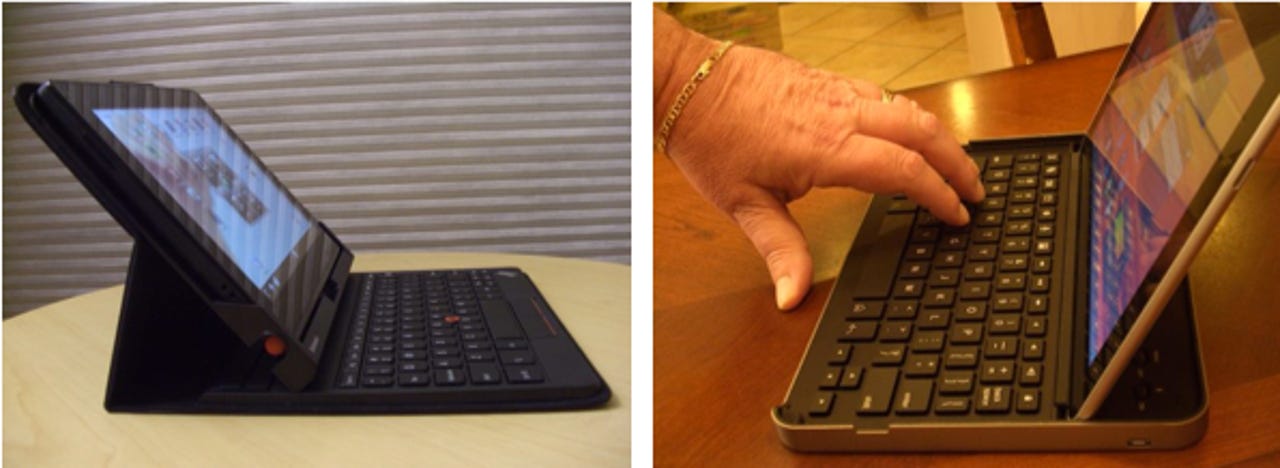State of the slate: The glitchy nature of Android tablets

I am referred to as the Tablet Guy by many acquaintances as I have been using them for a decade. I started with tablets when they weighed over four pounds, and have upgraded more times than I can count. Tablet hardware has evolved wonderfully and slates are now thin, light and full-featured. Unfortunately, the software driving them has not kept up with that evolution.
I will ignore the elephant in the room of tablets as I don't have nor use an iPad. I owned the original iPad (and tested the iPad 2) and liked it a lot, but sold it when the smaller Galaxy Tab came along. This started me on my Android tablet adventure, which has included many of the top models. I am currently using a Galaxy Tab 10.1 and a ThinkPad Tablet in addition to the original Galaxy Tab. I have evaluated the Motorola XOOM, Acer A100 (first 7-inch Honeycomb tablet), Lenovo K1, HTC Flyer, and several other Android tablets over the past year.
See also: HP TouchPad: Everything you want to know; Review: Motorola XOOM, brimming with unrealized potential; Hands-on review: Samsung Galaxy Tab 10.1; Hands on with first 7-inch Honeycomb tablet: Acer A100; Lenovo IdeaPad K1 tablet: First impressions; ThinkPad Tablet: Ready for the boardroom; ThinkPad Tablet vs. Samsung Galaxy Tab 10.1 as laptop replacement
I own the HP TouchPad and have written a lot about it as I like it a lot. I find it more enjoyable to use than all Android tablets I have tried. The problem is that HP has orphaned the tablet and possibly the entire platform, so a long-term user relationship is not in the cards. It is hard to justify using the TouchPad as my main tablet for that reason. While HP may continue to update the software for a while, I do not believe it is realistic to expect that to continue much longer. I can't believe app developers will either, with no new users coming along.
I have a PlayBook but can't remember the last time I took it out and used it. The path RIM has taken with the PlayBook couldn't have rendered the device more ineffective had that been the objective. Too many core functions missing at launch, too long to get them working on the PlayBook, and now the confirmation that version 2.0 of the software won't be out until next year. The PlayBook is effectively dead to me.
Google is getting ready to release Android 4.0, aka Ice Cream Sandwich (ICS), and it looks pretty sweet. Of course we've seen it running mostly on phones, and it is not clear how much improved it will be over Honeycomb on bigger screens. This concerns me as I have been less than impressed with Honeycomb on tablets.
In my view a tablet should be a device that you just pick up and do things with it. No lag, no discovering it has shut down unexpectedly; just pick it up and do stuff. The system should run smoothly, without hiccups, and things should happen instantly. The hardware is more than good enough to handle this, and the software should support it. While I'm sure many Android tablet owners are quite happy with the way they work, in my own experience operation is lacking.
I am not saying that Android tablets are not good, they are. I am not saying that no Android owners are happy, they are. I am stating that my own experience with Android tablets has been wanting, and I don't see it getting better any time soon. Maybe ICS will help, but it's too early to tell until we see some actual products.
While Android is great for customizing the user experience, after fidgeting with it on a tablet for a while I want it to work smoothly as desired. That doesn't happen in my experience, and thus my unhappiness with Android tablets in general. At the end of the day I want to just pick up a tablet and use it, without hiccups, and that doesn't happen.
